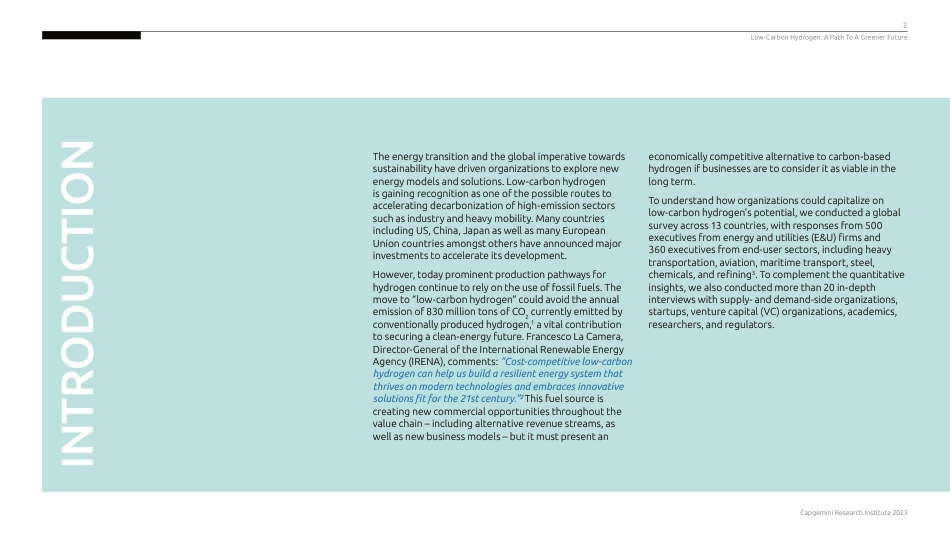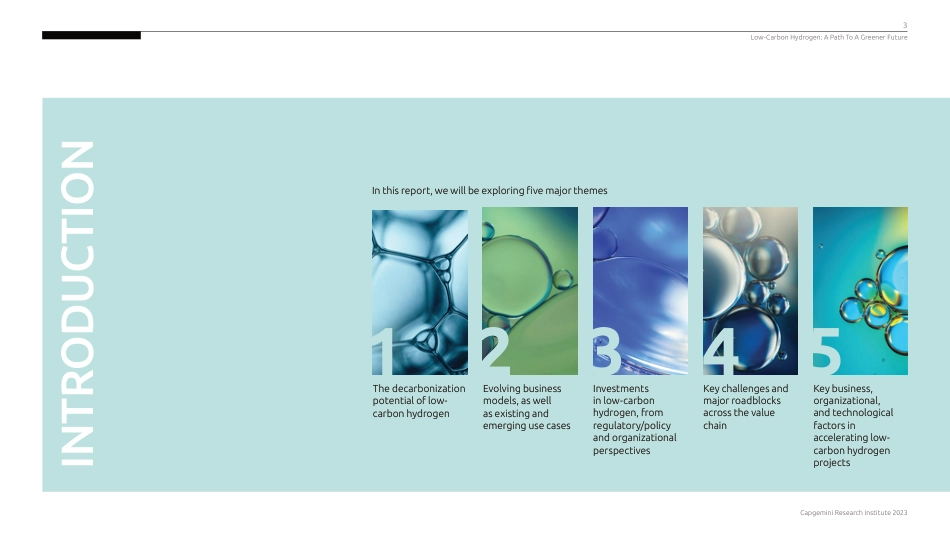#GetTheFutureYouWantA PATH TO A GREENER FUTUREINTRODUCTIONThe energy transition and the global imperative towards sustainability have driven organizations to explore new energy models and solutions. Low-carbon hydrogen is gaining recognition as one of the possible routes to accelerating decarbonization of high-emission sectors such as industry and heavy mobility. Many countries including US, China, Japan as well as many European Union countries amongst others have announced major investments to accelerate its development. However, today prominent production pathways for hydrogen continue to rely on the use of fossil fuels. The move to “low-carbon hydrogen” could avoid the annual emission of 830 million tons of CO2 currently emitted by conventionally produced hydrogen,1 a vital contribution to securing a clean-energy future. Francesco La Camera, Director-General of the International Renewable Energy Agency (IRENA), comments: “Cost-competitive low-carbon hydrogen can help us build a resilient energy system that thrives on modern technologies and embraces innovative solutions fit for the 21st century.”2 This fuel source is creating new commercial opportunities throughout the value chain – including alternative revenue streams, as well as new business models – but it must present an economically competitive alternative to carbon-based hydrogen if businesses are to consider it as viable in the long term.To understand how organizations could capitalize on low-carbon hydrogen's potential, we conducted a global survey across 13 countries, with responses from 500 executives from energy and utilities (E&U) firms and 360 executives from end-user sectors, including heavy transportation, aviation, maritime transport, steel, chemicals...



